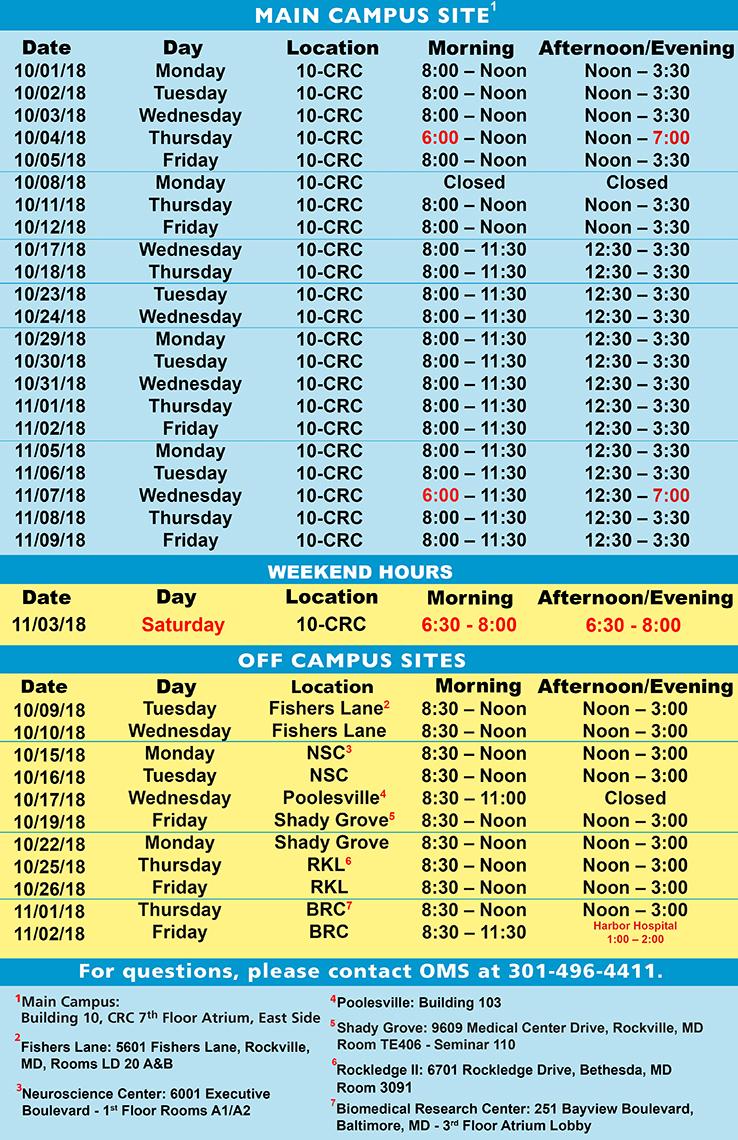Annual Flu Vaccine Clinic for NIH Staff Open in CRC; Off-Campus Sites Underway Soon
The Office of Research Services and the Clinical Center are providing free flu shots through Nov. 9 to staff who have a valid NIH identification badge.
Getting immunized each year provides the best protection against influenza throughout the flu season. By getting the flu shot, health care personnel can also reduce the risk of exposing patients to the influenza virus. All staff who have face-to-face patient contact, including both employees and contractors, are required to get the flu vaccine each year. For all other NIH staff, immunization with the flu vaccine is encouraged, but not required.
Opening early in the morning, the flu clinic will be located on the east side of the 7th floor of the Clinical Research Center.
Starting Oct. 9, off-campus sites will also provide free flu shots. Shady Grove, Bayview, Poolesville, Neuroscience Center, Fishers Lane and Rockledge locations are included on the schedule.
There are several clinics offered specifically for those who work nights and weekends. Clinic hours are scheduled in early mornings, evenings and on Saturdays at the CRC 7th floor atrium. Check the schedule at right for specific dates, times and directions.
The vaccine is administered in the upper arm, so wear short sleeves or clothing that allows for easy exposure of your upper arm/shoulder. There is a high-dose vaccine for workers 65 and older, available upon request.
It takes about 2 weeks after immunization for antibodies to develop in the body and provide protection against influenza virus infection. In the meantime, you are still at risk for getting the flu. That’s why it’s better to get immunized early in the fall, before the flu season really gets under way.
A flu vaccine is needed every year because flu viruses are constantly changing. The flu vaccine is adjusted each year to keep up with the flu viruses as they change.
Also, multiple studies conducted over different seasons and across vaccine types and influenza virus subtypes have shown that the body’s immunity to influenza viruses (acquired either through natural infection or immunization) declines over time.
Getting immunized each year provides the best protection against influenza throughout the flu season.

